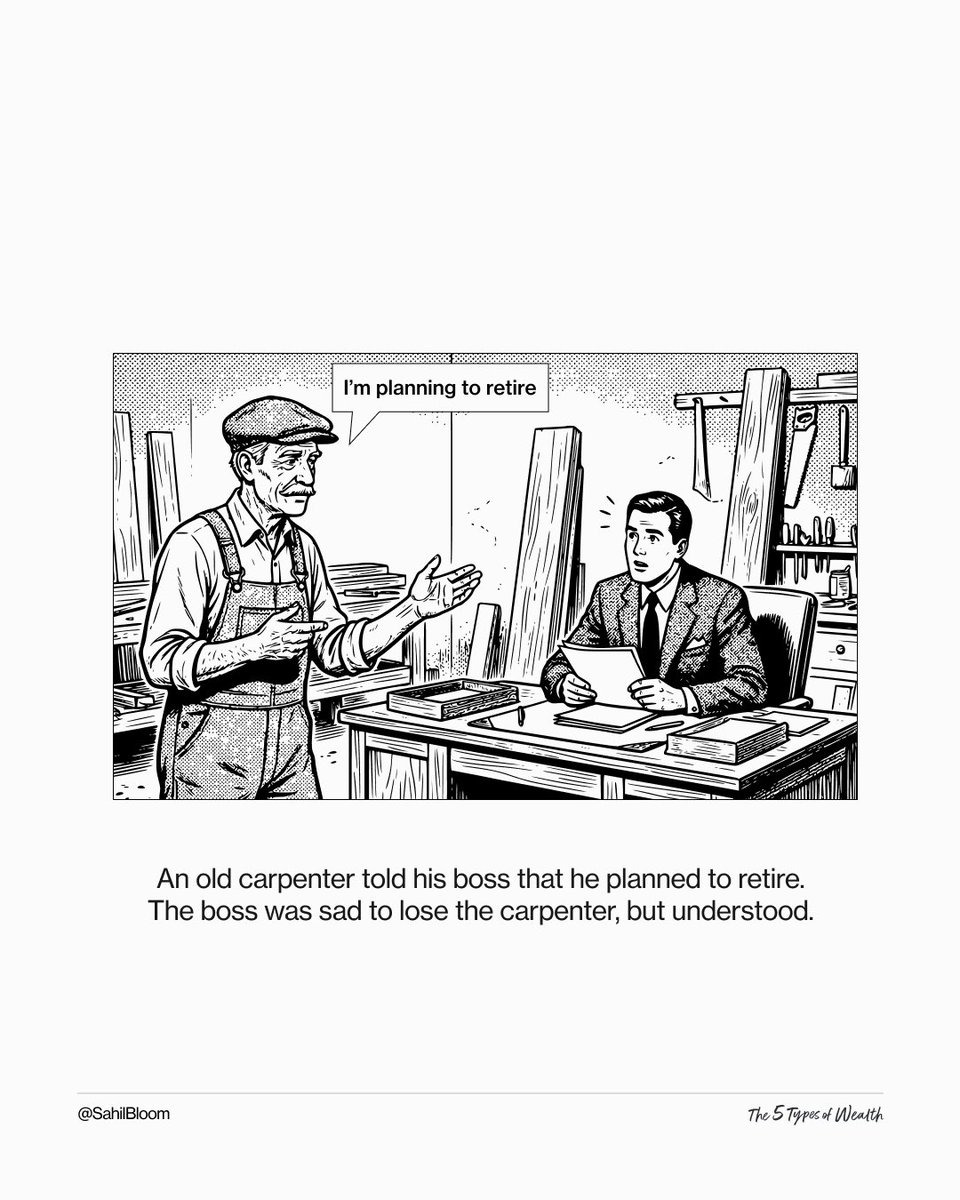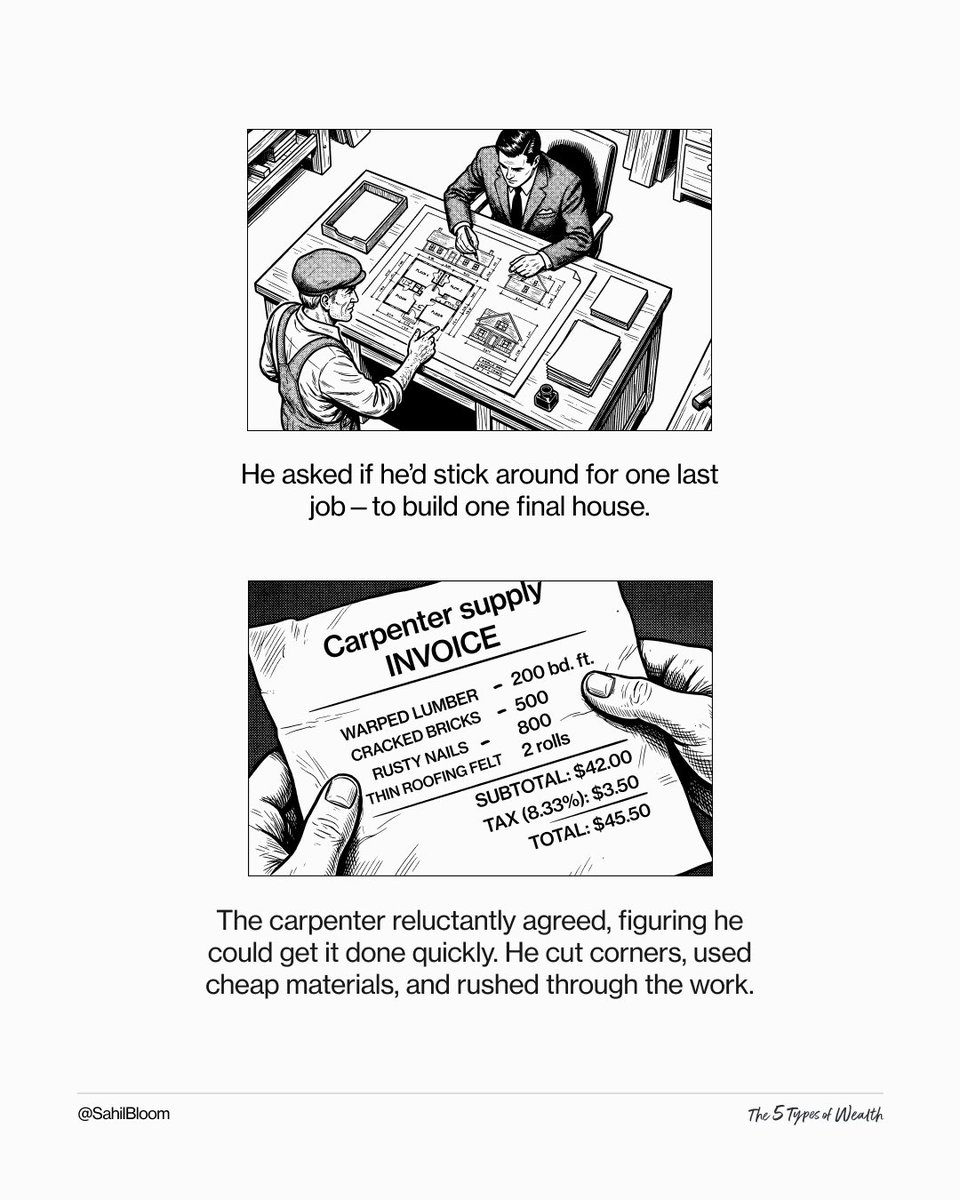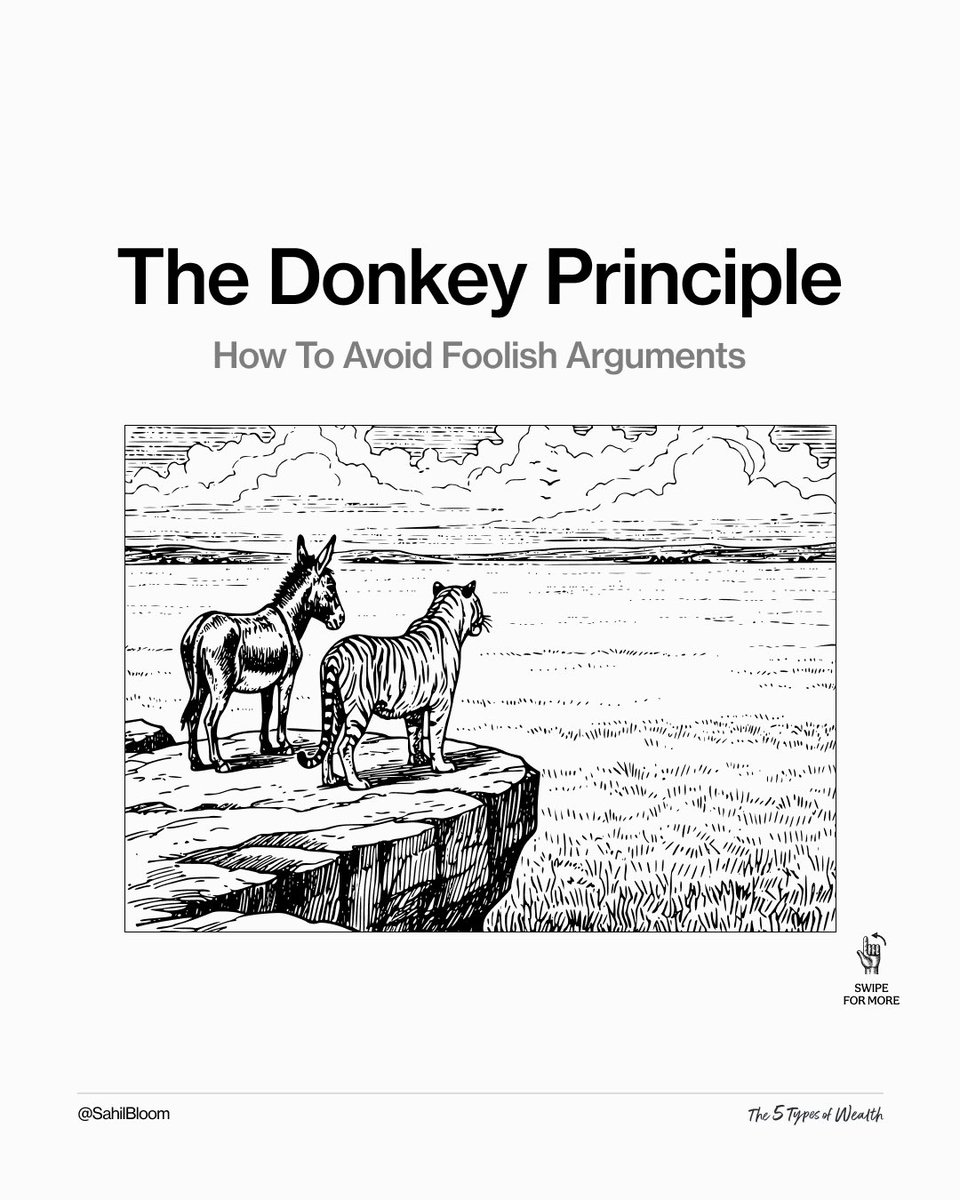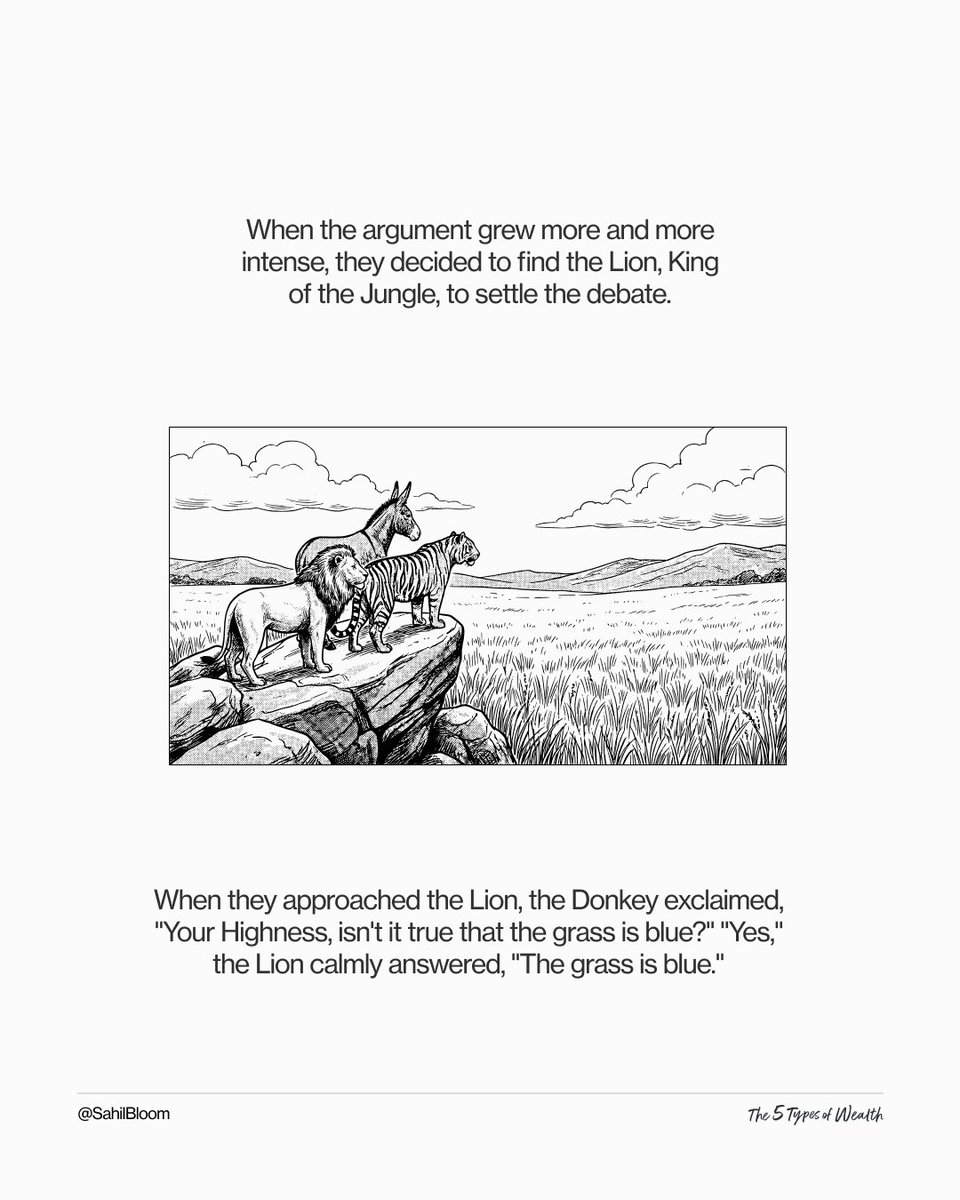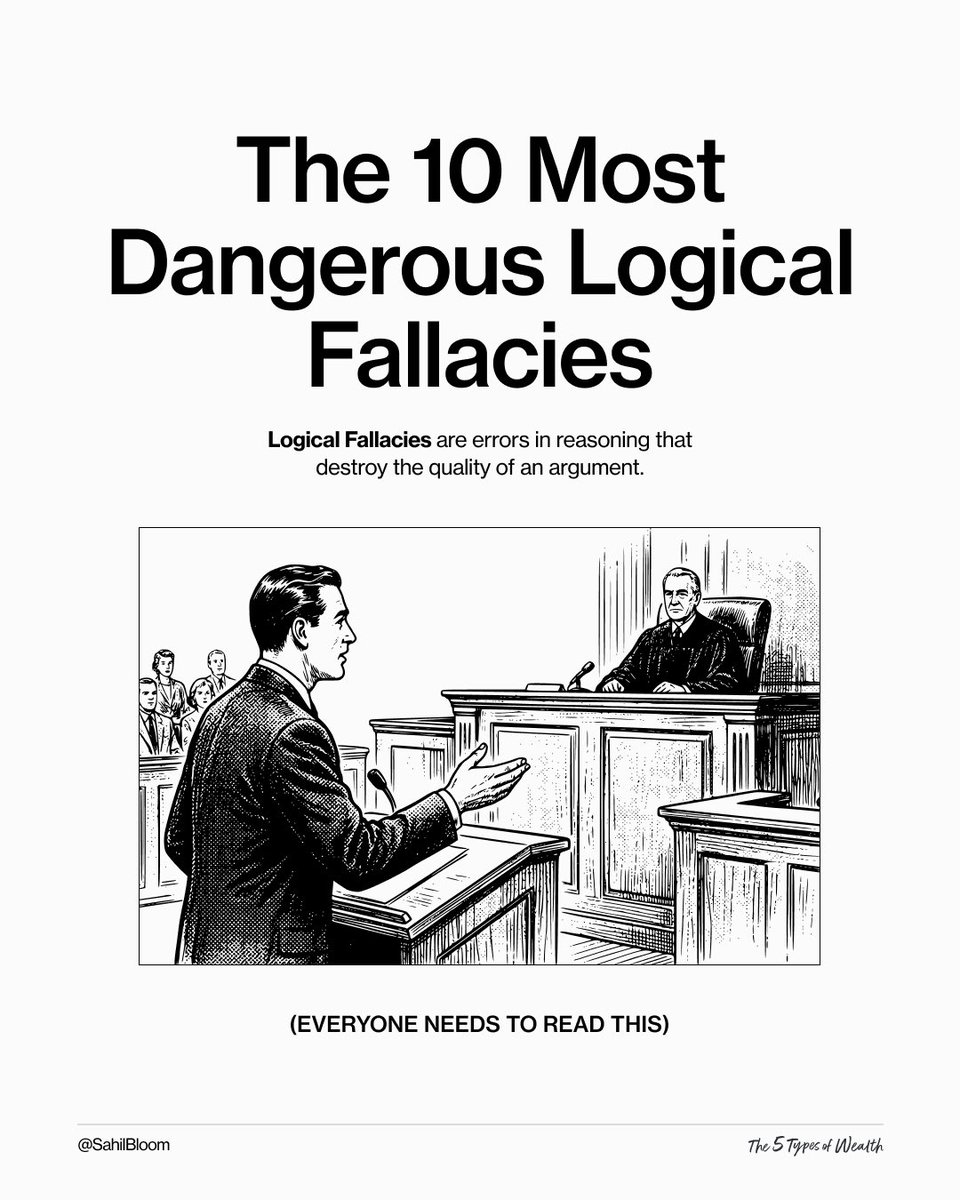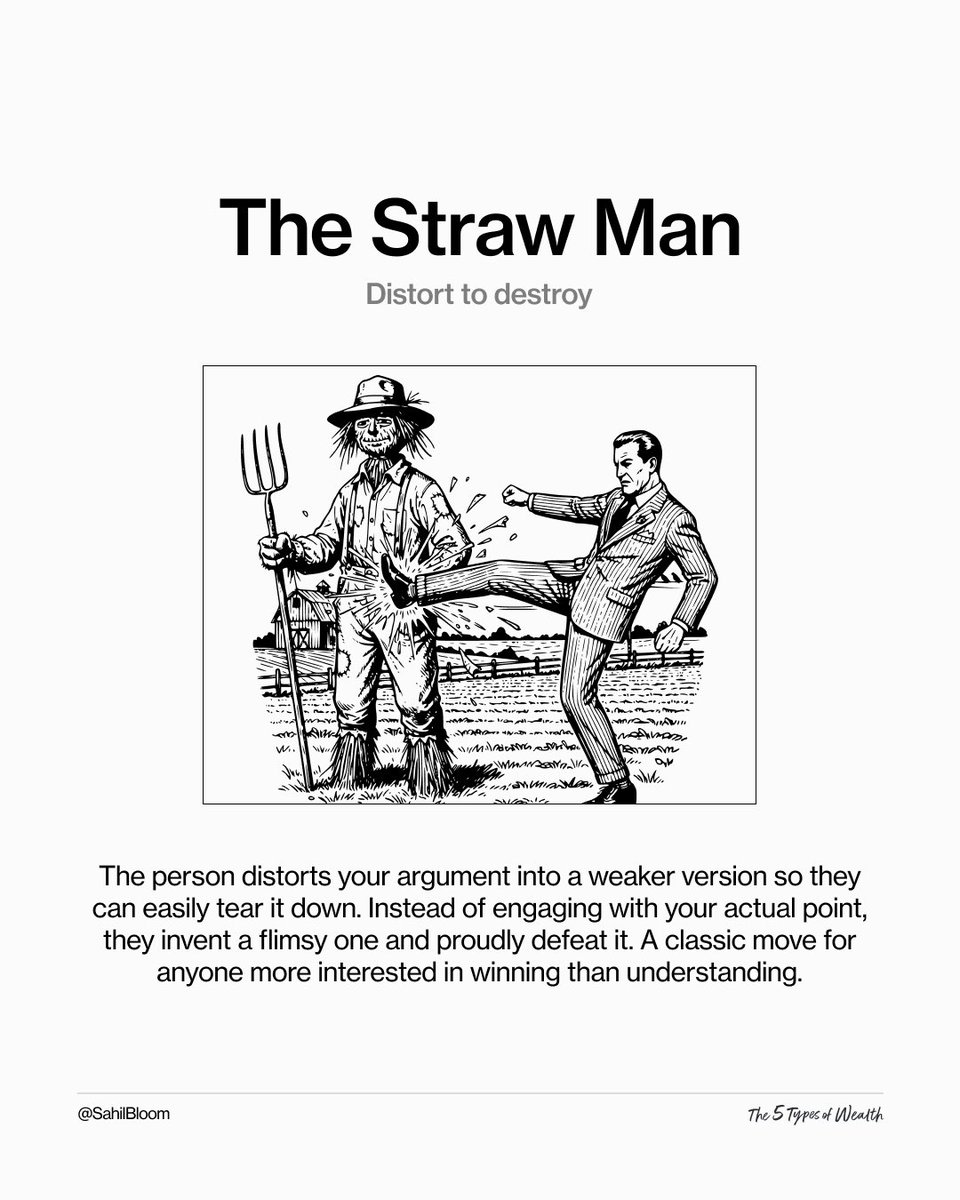Warren Buffett is a treasure trove of wisdom.
But contrary to what you have been told, most of it has nothing to do with investing.
10 powerful lessons for life from the Oracle of Omaha:
But contrary to what you have been told, most of it has nothing to do with investing.
10 powerful lessons for life from the Oracle of Omaha:
Wait For A Juicy Pitch
“You don't have to swing at everything - you can wait for your pitch."
Life doesn’t reward you for the number of swings you take.
Focus on identifying the juiciest pitch.
When it comes, swing hard and don’t miss it.
“You don't have to swing at everything - you can wait for your pitch."
Life doesn’t reward you for the number of swings you take.
Focus on identifying the juiciest pitch.
When it comes, swing hard and don’t miss it.
Just Stop Digging
“The most important thing to do if you find yourself in a hole is to stop digging."
When things aren’t working, change course and try something different.
Be nimble. Be agile.
When you find yourself at the bottom of a hole, stop digging and climb out of it.
“The most important thing to do if you find yourself in a hole is to stop digging."
When things aren’t working, change course and try something different.
Be nimble. Be agile.
When you find yourself at the bottom of a hole, stop digging and climb out of it.
Exploit Disconnects
“Price is what you pay. Value is what you get.”
Seek out situations where there is a clear disconnect between price and value.
This applies to investing, but it’s more broadly a mental model for life.
Identify disconnects. Exploit them to your advantage.
“Price is what you pay. Value is what you get.”
Seek out situations where there is a clear disconnect between price and value.
This applies to investing, but it’s more broadly a mental model for life.
Identify disconnects. Exploit them to your advantage.
Be Contrarian
“Be fearful when others are greedy and greedy when others are fearful.”
Following the crowd is easy, but it can be a trap.
Learn to think independently. Come to your own decisions. Develop your own mental models.
Your unique perspectives are your superpower.
“Be fearful when others are greedy and greedy when others are fearful.”
Following the crowd is easy, but it can be a trap.
Learn to think independently. Come to your own decisions. Develop your own mental models.
Your unique perspectives are your superpower.
Optimize Value Capture
“Opportunities come infrequently. When it rains gold, put out the bucket, not the thimble."
Create structures that enable you to capture more of the value you create.
The most successful people have simply optimized their value capture mechanisms.
“Opportunities come infrequently. When it rains gold, put out the bucket, not the thimble."
Create structures that enable you to capture more of the value you create.
The most successful people have simply optimized their value capture mechanisms.
Make Time Your Friend
“Time is the friend of the wonderful business, the enemy of the mediocre.”
Don’t be in a rush.
Set up your life to compound value over the long-term.
Play long-term games with long-term people.
Make time work for - not against - you.
“Time is the friend of the wonderful business, the enemy of the mediocre.”
Don’t be in a rush.
Set up your life to compound value over the long-term.
Play long-term games with long-term people.
Make time work for - not against - you.
Protect Your Circle of Competence
“Risk comes from not knowing what you're doing.”
Be ruthlessly honest about what you know (your circle of competence) and what you don’t.
Focus on playing games within your circle - otherwise, you’re just gambling.
“Risk comes from not knowing what you're doing.”
Be ruthlessly honest about what you know (your circle of competence) and what you don’t.
Focus on playing games within your circle - otherwise, you’re just gambling.
Never Get Caught Naked
“It's only when the tide goes out that you discover who's been swimming naked.”
Find a balance between pushing yourself for growth and being completely out of your depth.
Never put yourself in a high-stakes position to get caught swimming naked.
“It's only when the tide goes out that you discover who's been swimming naked.”
Find a balance between pushing yourself for growth and being completely out of your depth.
Never put yourself in a high-stakes position to get caught swimming naked.
Reputation Matters
“It takes 20 years to build a reputation and five minutes to ruin it. If you think about that, you'll do things differently.”
In every interaction - big or small - always act in accordance with strong principles and values.
Your character is your fate.
“It takes 20 years to build a reputation and five minutes to ruin it. If you think about that, you'll do things differently.”
In every interaction - big or small - always act in accordance with strong principles and values.
Your character is your fate.
Invest In Yourself
“The most important investment you can make is in yourself."
There is no better investment than an investment in yourself.
Find time to read, to think, to learn.
Surround yourself with amazing people who push you to become better.
Invest in you.
“The most important investment you can make is in yourself."
There is no better investment than an investment in yourself.
Find time to read, to think, to learn.
Surround yourself with amazing people who push you to become better.
Invest in you.
These are 10 powerful lessons for life from Warren Buffett, but there are so many more.
What are your favorite lessons from the Oracle of Omaha?
I have to admit, I am still shaking from this moment at the Berkshire Hathaway Annual Meeting in 2019...
What are your favorite lessons from the Oracle of Omaha?
I have to admit, I am still shaking from this moment at the Berkshire Hathaway Annual Meeting in 2019...

Follow me for more threads on business, finance, mental models, and life. You can find all of my threads in the meta-thread below.
https://twitter.com/SahilBloom/status/1284583099775324161
And if you are less Twitter inclined, sign up here to receive my threads (and audio versions!) directly to your inbox. sahilbloom.substack.com
• • •
Missing some Tweet in this thread? You can try to
force a refresh



